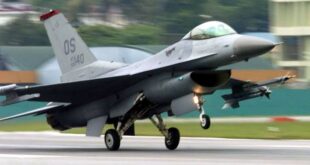By Zahid Rabbani
Global security order today is in a state of disarray. Military expenditures are reaching new heights and arms races are evident across multiple domains. There is clear resistance by leading technology holders to limit or regulate new and lethal tools of modern warfare.
Minister of State for Foreign Affairs Hina Rabbani Khar in a veiled criticism of India has rightly said that the generous supply of conventional and non-conventional weaponry to the neighboring country is severely straining the strategic stability of South Asia, and threatening Pakistan’s national security.
In contravention of established non-proliferation rules and principles, the largest country in the region continues to be a beneficiary of nuclear exceptionalism. Khar lamented that the favors given to India were straining the security environment and heightening the risks to peace and stability in the region.
In a video statement at a high-level segment of the 65-member Conference on Disarmament in Geneva, she also added by saying that India remains a net recipient of generous supplies of advanced conventional and non-conventional weapons, technologies, and platforms.
The favors given to India were putting a burden on the security situation since they increased the dangers to peace and stability in the area reinforced the recipient state’s attitude of impunity, and blocked paths to peaceful dispute settlement.
Pakistan cannot overlook threats to its security, even as it upholds and calls for prudence and responsibility. Pakistan will continue to pursue the road of peace, prosperity, and strategic stability in South Asia and beyond. Pakistan views the Conference on Disarmament as a crucial cog in the disarmament and international security mechanism.
ong>Khar’s remarks come as India has ramped up spending to modernize the military with Prime Minister Narendra Modi underlining the commitment to boost domestic production to supply forces deployed along two contentious borders with Pakistan and China.
Last month, India proposed 5.94 trillion rupees ($72.6 billion) in defense spending for the 2023-24 financial year, 13 percent up from the previous period’s initial estimates.
The international community founded the conference in order to negotiate arms control and disarmament accords. Pakistan regards the Conference on Disarmament as an indispensable part of the global security architecture and the disarmament machinery.
The forum’s ability to start negotiations on its agenda items remains contingent on the policy priorities of its members, their threat perceptions, and their core national security concerns.
The minister proposed that the Conference on Disarmament must contribute to and promote security at international and regional levels, play its role in creating conditions that were responsive to the principle of the inalienable right to equal security by all states, and adhere to disarmament measures in an equitable and balanced manner.
A third of humanity that lives in South Asia deserves investments in sustainable peace and development, highlighting that Pakistan had a clear vision and a policy for a peaceful neighborhood based on universally agreed principles, sovereign equality, and undiminished security for all States, no threat or use of force, and pacific settlement of disputes.
Pakistan will continue to pursue the path of peace, development, and strategic stability in South Asia and beyond. Pakistan remains committed to the goal of a nuclear weapons-free world achieved in a universal, verifiable, and non-discriminatory manner.
Pakistan stands for achieving a world free of nuclear weapons. Pakistan has suggested a Fissile Material Treaty that aims to create a fresh mandate for a convention expressly defining the extent of fissile material stocks and applicable to all States equally.
The international community must consider Pakistan’s proposal for a renewed paradigm for arms control at regional and global levels. It must find ways to address the existing and emerging risks to security and stability.
 Pride News Daily NEWS
Pride News Daily NEWS





